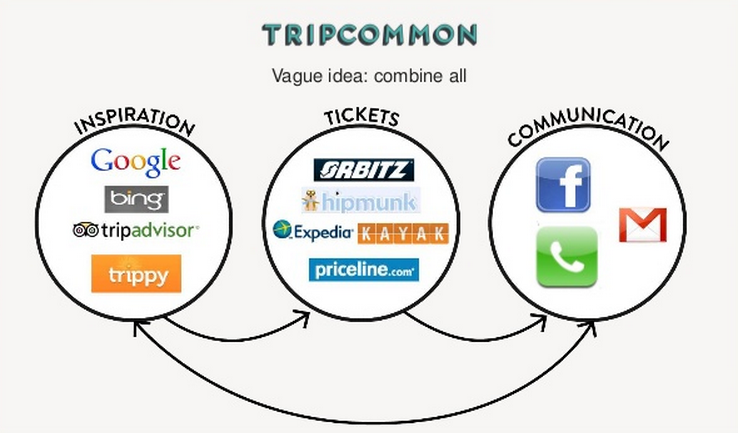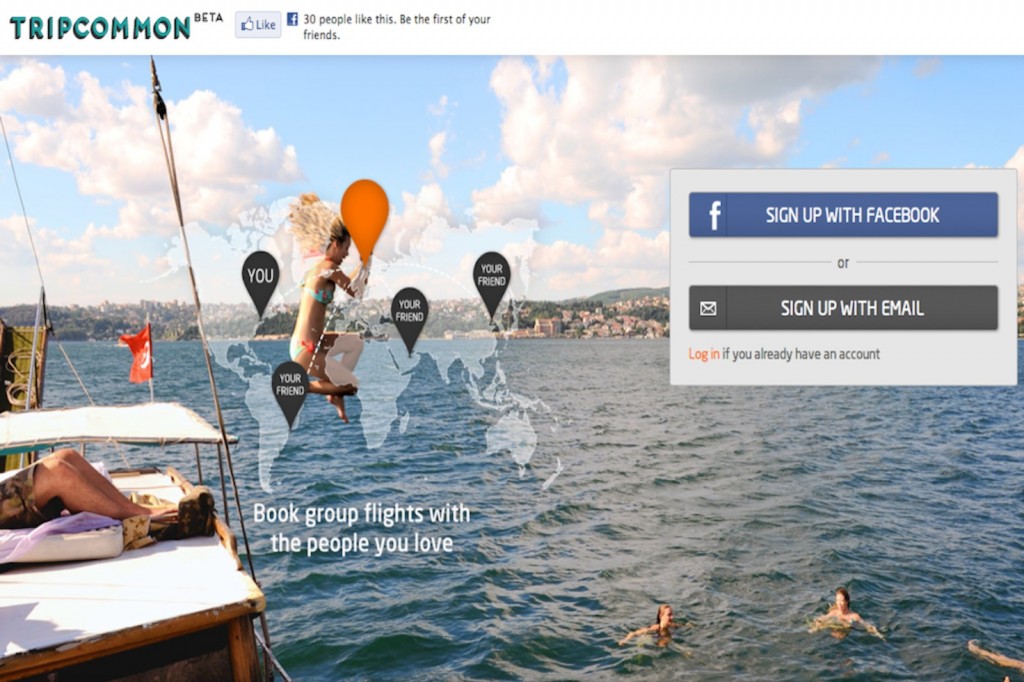It’s a known fact that travel is not the easiest industry to monetize, and hence one that scares investors away. There are several valid reasons for that:
- Most consumers book around 3 trips a year, mostly to visit friends and family
- Less than 30% of people book online, which means most people are still less mobile and flexible than the avid traveler
- Many abide by the lowest-rated rule, an irrational attachment to the lowest price (even if implies lowest quality)
However, in the past few years, the travel industry has been growing at an accelerating rate and is expected to continue to do so. The growth trend has resulted partly from the spike of online transactions and people taking shorter and more frequent trips.
Picture via Tnooz
Surprisingly, leisure travel is at three times the spending value of business travel ($3,2tr versus 1tr). This is partly justified by the industry’s recent market fragmentation; today’s prospective travelers are social, mobile and undeserved by the current travel planning tools, which is essentially how the need for this past weekend’s New York Travel Festival came to life.
Gone are the days of pesky travel agents. The travel experience has changed dramatically, and for today’s young, tech-savvy travelers – already voracious globetrotters – more options are needed.
The TripCommon story:
Gillian Morris came up with an idea, while living in Istanbul. She participated in Startup Weekend Istanbul and received the validation she needed. She received more than that; she won THack London, sponsored by Tnooz, the premier source of travel tech industry news.
Idea: Provide a service to help you find the best place and time to travel with friends in different places, all while saving you the additional clicks and frustrations. Enter TripCommon.
According to a study by Google, the average traveler visits 22 sites prior to booking, and so TripCommon came to life to deliver the same results in 6% of the time.
The TripCommon idea is evolving, and Gillian and team are currently working on a slightly different version. Now, TripCommon helps you find out where your friends are and how you can travel to them or with them.
I met Gillian at a Travel 2.0 event where she presented TripCommon, and asked her for tips from starting her own startup:
What prompted you to start TripCommon?
Do you enjoy searching for plane tickets and feel like you usually get a good deal? I certainly didn’t. I thought there were a lot of common sense fixes that needed to happen in the travel search and booking process and, for whatever reason, the big companies didn’t seem to be addressing them. The more I’ve learned about the travel industry, the more I understand why some of the issues I was seeing (lack of flexible search options, the slowness of results) are really difficult to solve. But some aren’t. TripCommon was founded to tackle the big stuff, but we’re focusing on some very small improvements first to make sure we’re on the right track.
What would you advise other people thinking to start their own travel startup?
I can’t emphasize enough that you need to remember where you fit into the market. If I had a cent for every time I met a startup founder in the travel space who was essentially building something that only they and their yuppie friends would find useful – and even there, only marginally useful – I’d have at least a couple hundred dollars. There’s also a big disjoint between what you think you want and what is actually a pressing need. Do surveys, examine past startups and why they’ve failed (or not), and get something to market as quickly as possible to test your assumptions.
What have you learnt from this experience? Any trial and errors you want to share?
I’ve learnt that the entrepreneurial world is an incredibly generous one. If you ask, you’ll generally receive. The number of times people have helped me out – whether it’s offering a couch to crash on, a crash course in coding, or a very useful introduction – has been humbling, and is appreciated. I think the greatest error I’ve made so far is in not asking for more. Don’t get me wrong, you need to be providing something in return. In my case, I offer a guarantee that I’m doing my best to build something that will be useful for the people who are helping me out, and hopefully others as well. As Charlie O’Donnell puts it in a recent blog post, founders can offer the ‘money for interestingness’ trade. I think we as entrepreneurs undervalue that concept, and I’ve had to learn to ask for more.
Do you think travel will become a more attractive industry for investors in the near future?
Yes. Granted, plenty of investors have gotten burned in the travel space. But there are too many trends pointing in the right direction for investors to not want to try again.
For the full presentation on the TripCommon story, check here.
Thinking of starting a travel startup yourself?



